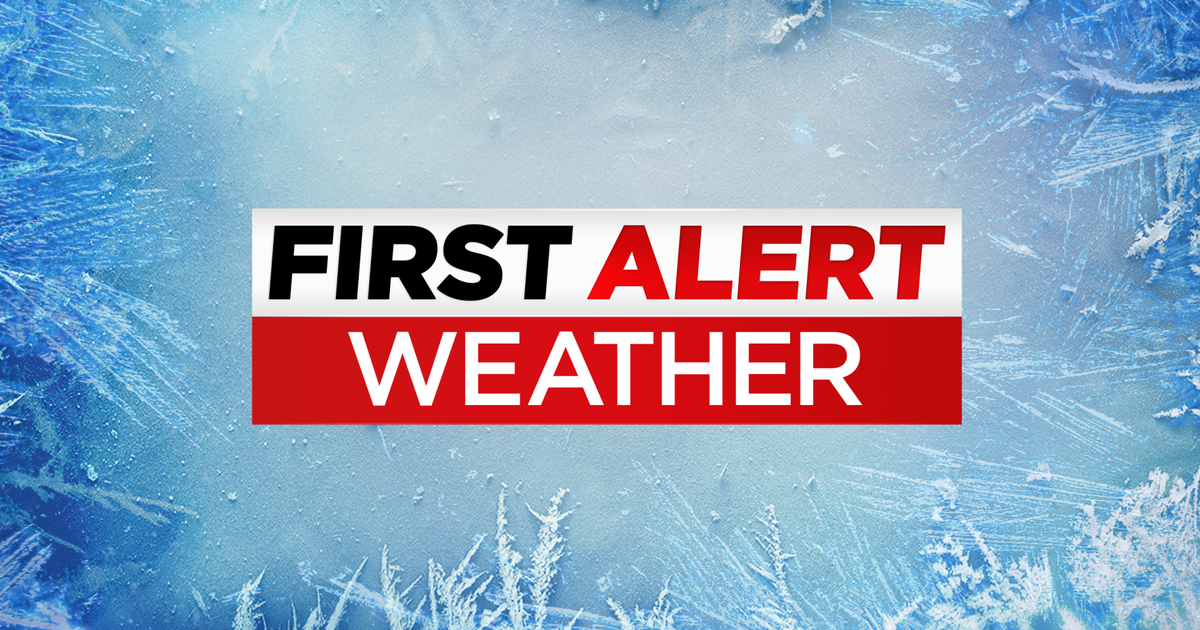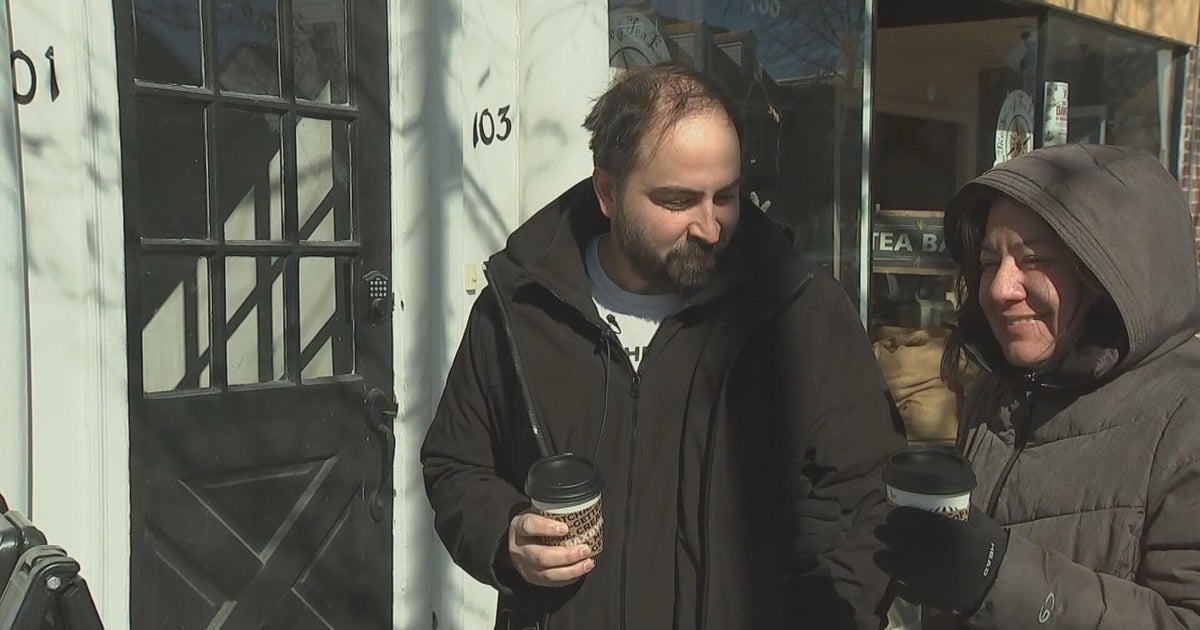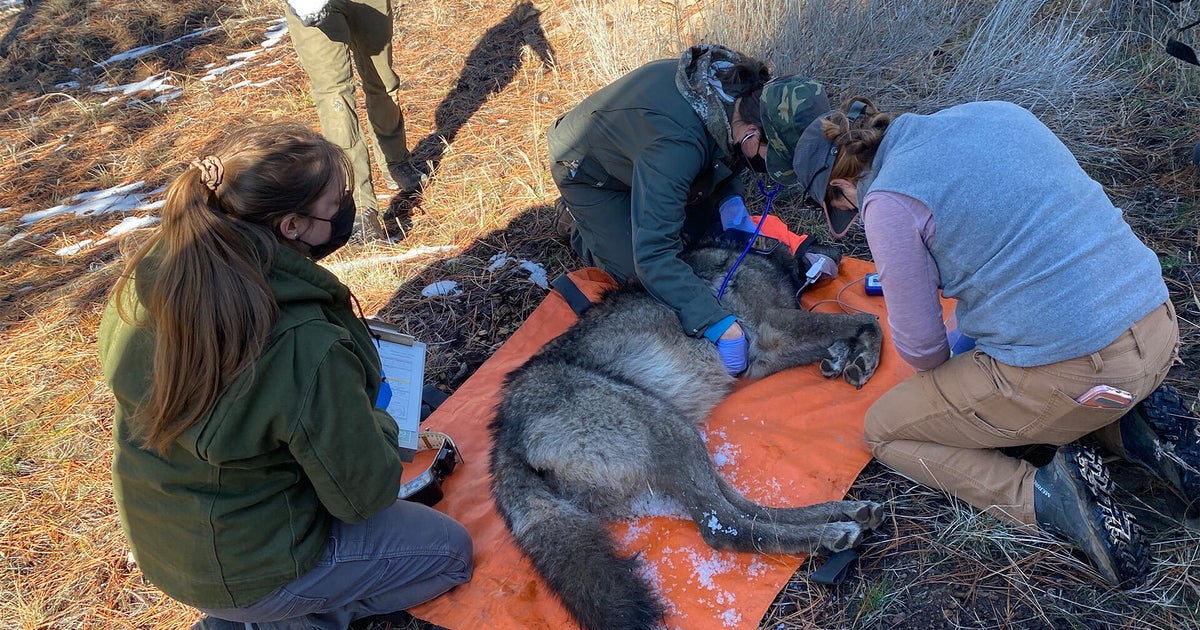Chicago Environment Department tracks unpredictable weather driven by climate change
CHICAGO (CBS) -- Temperatures hit record highs in Chicago on Tuesday with many out and about enjoying the weather in the city – only to crash back to temperatures befitting of a Chicago winter following the passage of a cold front with powerful evening storms.
On Tuesday, the high in Chicago hit 71. By Wednesday, it was back to the 20s. While we are used to the unpredictable in Chicago weather, experts said we will be seeing more unusual weather moving forward – due to climate change.
The Chicago Department of The Environment is keeping a close eye on the temperatures after tracking them this summer.
"This is a chaotic system," said Dr. Rao Kotamarthi, science director at the Center for Climate Resilience and Decision Science at the U.S. Department of Energy's Argonne National Laboratory. "So you get these high temperatures then low temperatures."
And two days of warm weather in February might be pleasant for human beings, but it will have devastating consequences for wildlife – including reptiles and amphibians, birds, and bees.
So, what is happening in Chicago to address this chaotic climate-change-related weather? Kyra Woods of the city's Department of Environment had some answers on Tuesday – before the temperatures plummeted.
Molina: "As we continue to see the impact of climate change, we're going to continue to see more unpredictable and possibly more volatile weather. Your office is prioritizing addressing that throughout the city?"
Woods: "That's absolutely right. It's notable that we would have these higher temperatures as early as February, because we know that in Chicago our bodies aren't as prepared for some of those higher temperatures. Looking at those trends is really important. It's also important to acknowledge that as a precursor in some ways for what may be coming."
It's behind work the department is doing across the city right now. CBS 2 followed their team, and their partners, last summer as they tracked temperatures throughout the city to see how heat impacts Chicago's 77 official community areas differently.
Right now, the department is moving forward with that project to create a specialized heat index that will help lead to solutions for those areas feeling temperatures most severely – such as adding green spaces or making sure certain building materials are used.
"In the climate context, it's important we recognize the burdens that are felt by our shifting climate - or some of the effects of that shift - those burdens aren't felt the same way in all geographic places," Woods said.
Woods said the massive shift in weather in Chicago this week is an example of why the work the Department of the Environment is doing now - and plans to continue - is so important.
"The matter of climate change and climate awareness and response is large - and while that can be very overwhelming for some, I think it's a great opportunity to mobilize and create really robust opportunities for policy, programs, services, and education opportunities," Woods said.
CBS 2 also reached out to Illinois state Climatologist Trent Ford, who said that while two June-like days in February may seem like a small trend, they represent a significant change:
"The National Weather Service will confirm for the daily summary tomorrow morning, but if that was indeed the high temperature it would be a new record for February 26th, and would be the 3rd highest temperature on record in February. The record was 75 degrees on February 27, 1976. The forecast tomorrow is for a high of 74 degrees, so it's possible we could get close to that all-time February record. Also, tonight's forecasted low temperature is 53 degrees, and the highest all-time February nighttime temperature is 54 degrees (from 1925)... so we could be approaching that one, too.
"Chicago is still about 8-9 inches below normal on season-to-date snowfall. They've had 21" at O'Hare so far, compared to 29-30" normally by this time in the season.
"The very mild temperatures and lack of snowfall are very typical of a strong El Nino winter. Additionally, our long-term trends in winter are for warmer conditions in Chicago, driven by human-caused climate change. Those two drivers have contributed to this season's weather. It is virtually certain that this winter season will end as a top 10 warmest on record in Chicago, and could end up being in the top 3-5 warmest.
"Like you mentioned, temps are going to drop on early Wednesday morning following a strong cold front. The daytime high temperature on Wednesday could be 20 degrees colder than the nighttime low temperature tonight. The cold air will stick around until the end of the week, but we'll be right back in the 60s this weekend."
"To your last question: what may seem like a relatively small trend in warm winter days represents a significant change. Many of the impacts of a warmer winter are cumulative, meaning every unusually warm day we have adds to the potential of the impact. For example, the timing of perennial plant or tree dormancy break is dependent on winter temperatures, so more warm days pushes us closer to an earlier dormancy break, which can increase freeze risk. Likewise, earlier spring and later fall increase allergy season, which worsens air quality problems in the city."







